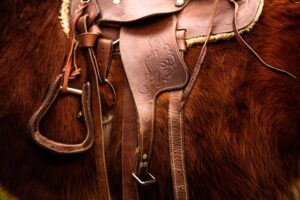Horses are majestic creatures that have captivated humans for centuries with their beauty and grace. They are not only companions but also athletes, performers, and partners in work. As owners and caretakers of these magnificent animals, it is essential to implement strategic horse care management practices to ensure their well-being and longevity. By incorporating key practices into their care routine, horse owners can provide the best possible care for their equine partners. In this article, we will explore the importance of strategic horse care management and discuss the key practices that every horse owner should incorporate into their daily routine.
Setting up a Structured Feeding Schedule for Optimal Nutrition
Horses require a well-structured feeding schedule to maintain optimal nutrition and health. By implementing key practices in horse care management, you can ensure your horse receives the necessary nutrients to thrive. Here are some strategies to set up a structured feeding schedule for your horse:
- Consult a Veterinarian: Before making any changes to your horse’s diet, it’s important to consult with a veterinarian or equine nutritionist. They can provide guidance on the specific nutritional needs of your horse based on factors such as age, weight, and activity level.
- Establish a Routine: Creating a consistent feeding schedule can help regulate your horse’s digestion and keep them healthy. Try to feed your horse at the same times each day, with a balance of hay, grains, and supplements as recommended by your veterinarian.
- Monitor Weight and Body Condition: Keep a close eye on your horse’s weight and body condition to ensure they are getting the right amount of nutrients. Adjust their feeding schedule as needed to maintain a healthy weight and overall well-being.
Implementing Regular Exercise Routines for Physical Health
Regular exercise is essential for maintaining the physical health of horses. Implementing a strategic exercise routine can lead to improved muscle strength, cardiovascular fitness, and overall well-being for these magnificent animals. By incorporating a variety of exercises such as lunging, trail riding, and arena work, horse owners can ensure that their equine companions stay healthy and happy.
When planning a horse’s exercise routine, it’s important to consider their age, breed, and fitness level. Gradually increasing the intensity and duration of workouts can help prevent injuries and support the horse’s physical development. In addition to structured exercise sessions, allowing time for grazing and socializing with other horses is also beneficial for their mental and emotional health.
Consulting with a veterinarian or equine fitness expert can provide valuable guidance on creating a customized exercise plan for your horse. By incorporating a balanced mix of aerobic, strength training, and flexibility exercises into their routine, you can help them reach their full potential and lead a long, happy life. Remember, a healthy horse is a happy horse!
Utilizing Proper Hoof Care Techniques for Overall Well-being
Proper hoof care is essential for maintaining the overall well-being of your horse. By implementing strategic horse care management practices, you can ensure that your horse’s hooves are healthy and strong. One key practice is regular trimming and shoeing by a qualified farrier. This helps prevent issues such as cracks, imbalances, and other hoof abnormalities.
Another important aspect of hoof care is maintaining a clean living environment for your horse. Regularly cleaning out their stalls and paddocks helps prevent the buildup of harmful bacteria and fungi that can lead to hoof infections. Providing a comfortable and dry living space is crucial for hoof health.
Additionally, proper nutrition plays a significant role in hoof health. Ensuring your horse has a balanced diet that includes essential nutrients like biotin, zinc, and copper can help strengthen their hooves and promote overall hoof growth. Consult with a veterinarian or equine nutritionist to develop a diet plan tailored to your horse’s needs.
Incorporating Preventative Health Measures to Maintain Horse Health
Proper preventative health measures are essential for maintaining the health and well-being of horses. By incorporating strategic horse care management practices, you can ensure that your equine companions stay healthy and happy for years to come.
One key practice to incorporate into your horse care routine is regular vaccinations. Vaccinating your horses against common diseases such as tetanus, influenza, and equine herpesvirus can help prevent illness and reduce the spread of contagious diseases within your herd. Consult with your veterinarian to develop a vaccination schedule tailored to your horse’s specific needs.
Another important aspect of preventative health care for horses is maintaining a balanced diet rich in essential nutrients. Ensure that your horses have access to fresh water at all times and provide them with a diet that includes a mix of hay, grains, and supplements as needed. Regularly monitor your horse’s weight and body condition to ensure they are receiving adequate nutrition.
Key Takeaways
In conclusion, implementing strategic horse care management practices is essential for ensuring the health and well-being of your equine companions. By focusing on key aspects such as nutrition, exercise, and veterinary care, you can help your horses thrive and lead happy, fulfilling lives. Remember, a well-cared-for horse is a happy horse. So, don’t hesitate to prioritize their care and make it a top priority in your daily routine. Your four-legged friends will thank you for it!



